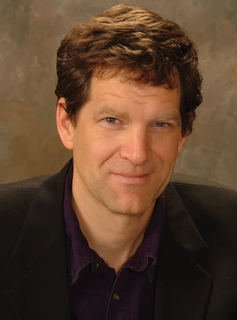
Dear Linux Magazine Reader,
People like to talk about "freedom" in open source circles, but freedom is one of those words with many definitions. One definition is "independence of action." When you're free, you can do whatever you want to and, as long as you don't hurt anyone, you can keep going. In a political context, the term "freedom" is also associated with the concept of equality. The streets of Paris echoed with cries of "Égalité!" in 1789, and thirteen years earlier, a coterie of hyper-intellectual landowners on another continent enshrined within the United States Declaration of Independence the "self-evident" truth that "all men are created equal."
Open source software certainly offers freedom of action. You can download the code from any GPL software project and do almost anything you want to with it - as long as you give back the results, and some licenses don't even require that. You can hack on the kernel anytime you want. You can run your custom version, and you can even distribute it to others. But you can't force Linus and the kernel developers to accept your revisions, and you can't expect a guarantee that your proposals will receive a share of attention equal to the share provided to kernel veterans like Andrew Morton and Alan Cox.
The point is that an open source project is not a government but a community. Communities do not always operate with the equality principle but are more likely to navigate through a combination of leadership and consensus that is best described as a meritocracy. People who have proven they know what they're doing get to be in charge. Ideally, these leaders are open minded and patient about resolving differences, but (also ideally) disputes are settled decisively, and if you don't like the result, your only option might be to fall back upon your freedom of action and start a new project.
This fundamental principle gets much more complicated as the open source model spreads from software development communities with (at most) a few hundred members to global writing projects where everyone in the world is a potential contributor. The most prominent of these efforts is the famous Wikipedia project (www.wikipedia.org). This vast, free encyclopedia long ago overflowed its original base and now reaches everyday users all over the planet - including everyone from school children to corporate CEOs. The challenge for Wikipedia is to provide the maximum freedom for user input while keeping free of special interests and preserving some semblance of quality control.
With a global audience and more than 2 million articles in English alone, this challenge is understandably illusive at times. Wikipedia has been in the news recently for allegations of self-interested manipulation by groups such as Fox News and the CIA. The problem is how to react surgically to such events without unintentionally censuring ideas or inconveniencing the innocent. An example of that dilemma appeared this month, when The Register reported that Wikipedia banned edits from 1000 homes in an attempt to shut out one contributor who happened to share the address range. That contributor, it seems, was immersed in an ideological dispute with another contributor over the propriety of a specific trading practice used in financial markets.
This event illuminated the immensely difficult task faced by Wikipedia's leaders as they sort through millions of words from thousands of contributors around the world - many of whom are passionate about helping but are also passionate about their own point of view. I hope Wikipedia users will keep the faith as the project perfects its systems of revision, review, and appeal. And I hope Wikipedia's leaders will remain open enough to feedback to grow and learn from this kind of controversy. Most of all, everyone needs to be patient, because the Wikipedia project is far too important to let fade away.